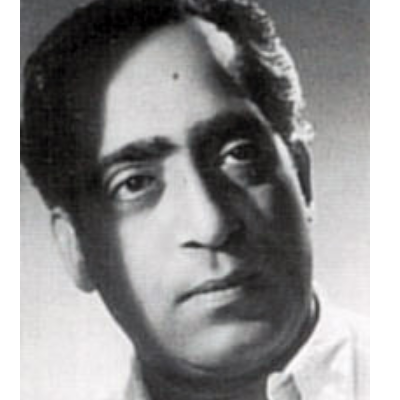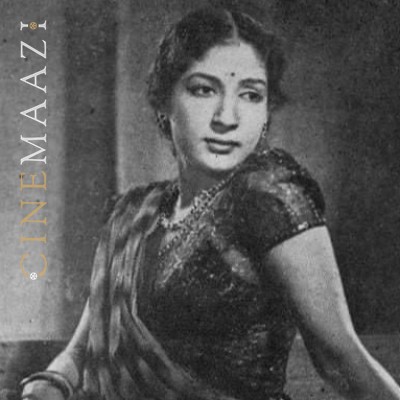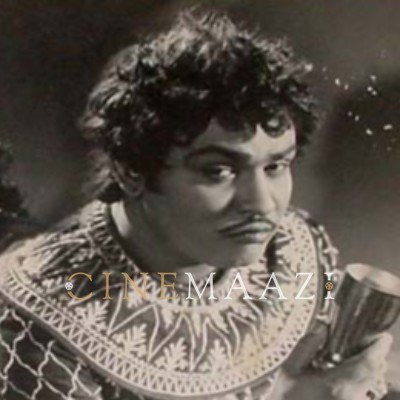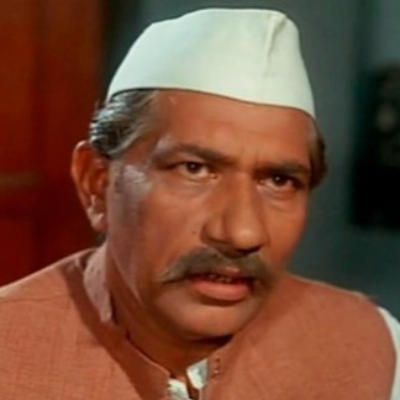Krishna Kalle

Subscribe to read full article
This section is for paid subscribers only. Our subscription is only $37/- for one full year.
You get unlimited access to all paid section and features on the website with this subscription.
Not ready for a full subscription?
You can access this article for $2 , and have it saved to your account for one year.
- Born: 18 December, 1940 (Karwar, Uttara Kannada)
- Died: 15 March, 2015 (Bombay)
- Primary Cinema: Marathi
Despite the playback singing realm being dominated by colossals like Lata Mangeshkar, Krishna Kalle managed to make a name for herself as a singer in Hindi, Marathi as well as Kannada films. She is memorable for hit songs of the 60s and early 70s, such as Hume to maar diya, a duet with Mahendra Kapoor from Hum Kahan Ja Rahe Hain (1966), Sochataa hun ke tumhein maine kahin dekha hai with Mohammed Rafi in Raaz (1967), Chakkar chalaaye ghana chakkar from Do Dooni Char (1968), and Meri hasraton ki duniya, which was a duet with Mohammed Rafi in Gaal Gulabi Nain Sharabi (1974). Among the films for which she rendered playback are Hum Kahan Ja Rahe Hain (1966), Bambai Raat Ki Bahon Mein (1967), Johar In Bombay (1967), Naunihal (1967), Shikar (1968), Sati Sulochana (1969), Bandish (1969), Taxi Driver (1973), Chhote Sarkar (1974), Zehreeli (1977) and Maila Aanchal (1981). Active in the Hindi film industry for around a decade from the 60s to the 70s, Krishna Kalle rendered more than 200 Hindi film songs, 100 Marathi film songs, 100 bhajans, as well as ghazals and devotional songs. She also released non-film albums with famous singers like Manna Dey and Mohammed Rafi. Among the key awards she received were K.L. Saigal Memorial Award in 1958, Golden Voice of India prize in 1965 and the Maharashtra government’s Lata Mangeshkar Award for Lifetime Achievement in 2014.
Born on 18 December, 1940 into a family hailing from Karwar, Uttara Kannada, Krishna grew up in Kanpur, where her father was employed. Learning Hindi and Urdu, her talent for singing shone at an early age. She started singing at Kanpur station of All India Radio at the age of 16, her popularity growing as she sang in various music festivals in Uttar Pradesh. In 1957, she received the national level youth singing awards by India’s first president Rajendra Prasad and first prime minister Jawaharlal Nehru. A year later, she won first place at the All India Sugam Sangeet Award, and K L Saigal Memorial’s Golden Voice Award among other awards. Krishna Kalle went on to land a job with All India Radio in 1960.
On a visit to Bombay, singer Arun Date heard her sing and introduced her to music director Yashwant Deo. Deo, who was employed at the Bombay station of AIR, composed a Marathi song which Kalle recorded - Man pisaat majhe. The song went on to become very popular, leading to more offers with Kalle going on to record the equally popular Parikathetil raaja kumaaraa and Uuth shankaraa sod samaadhii. She began broadcasting regularly as an A-grade artist from 1960 onwards. Among her popular Marathi songs were Mainaa raani chatur shahaani, Godagojirii laaj laajarii, Kaamaapurataa maamaa, and Biba ghya biba.
Active in the film industry for around a decade from the 60s to the 70s, Krishna Kalle’s repertoire includes no less than 200 Hindi film songs, 100 Marathi films songs, two Kannada film songs, and 100 bhajans, ghazals, as well as devotional songs.
Krishna Kalle passed away on 15 March, 2015 in Mumbai, aged 74.
References
Image from "Madhuri" 22 August 1969, pg 37











.jpg)



